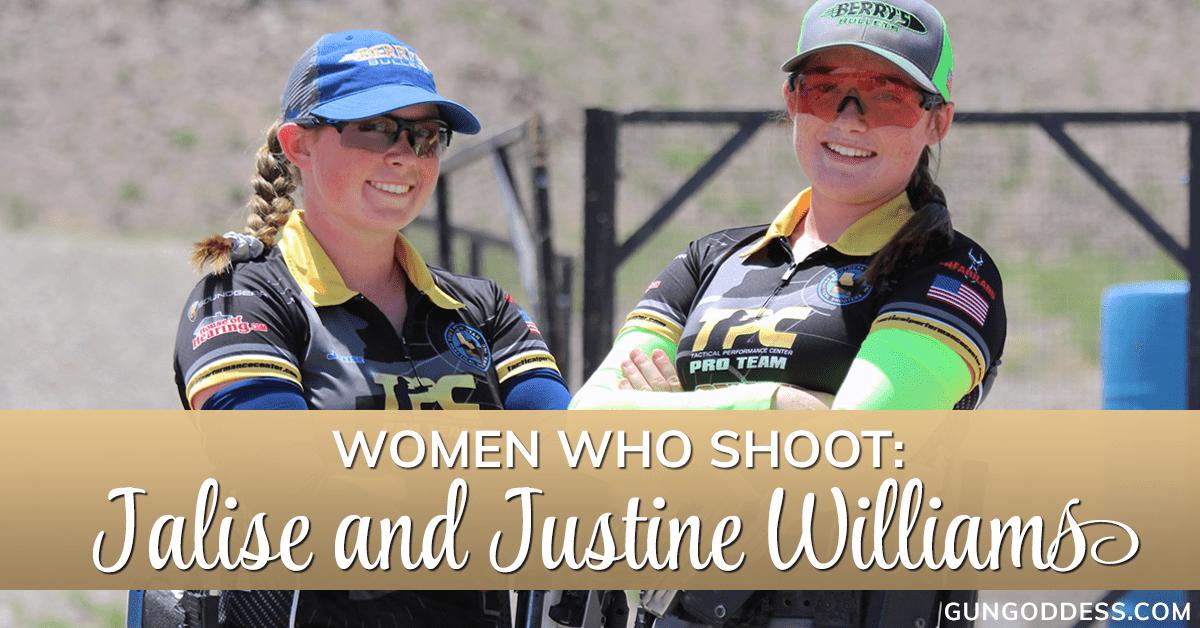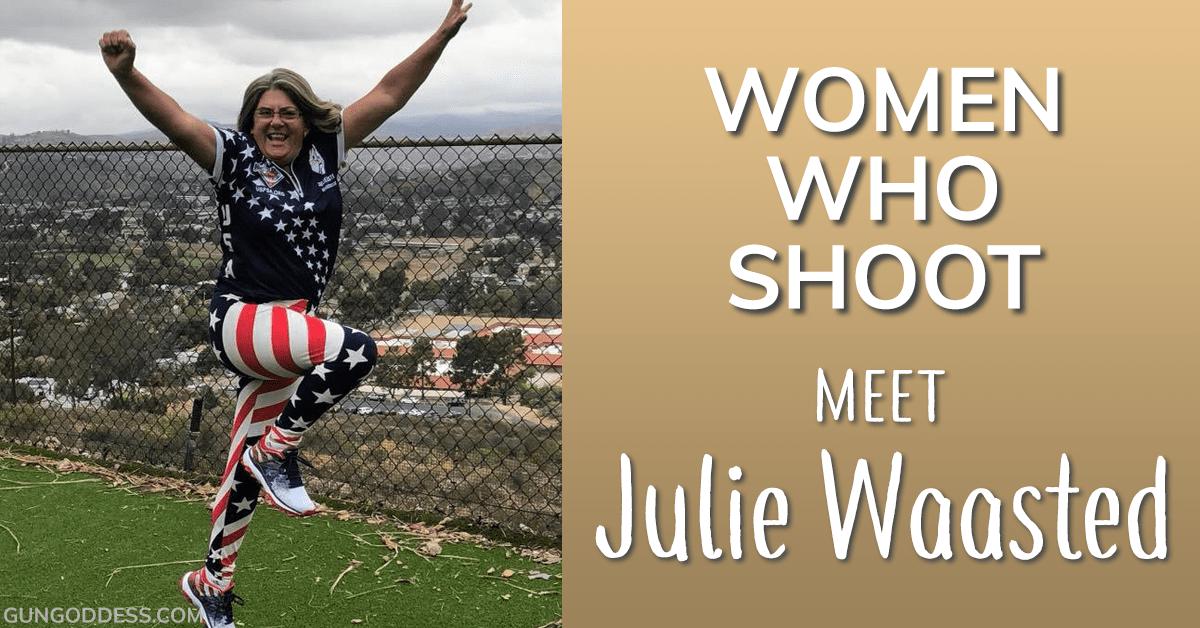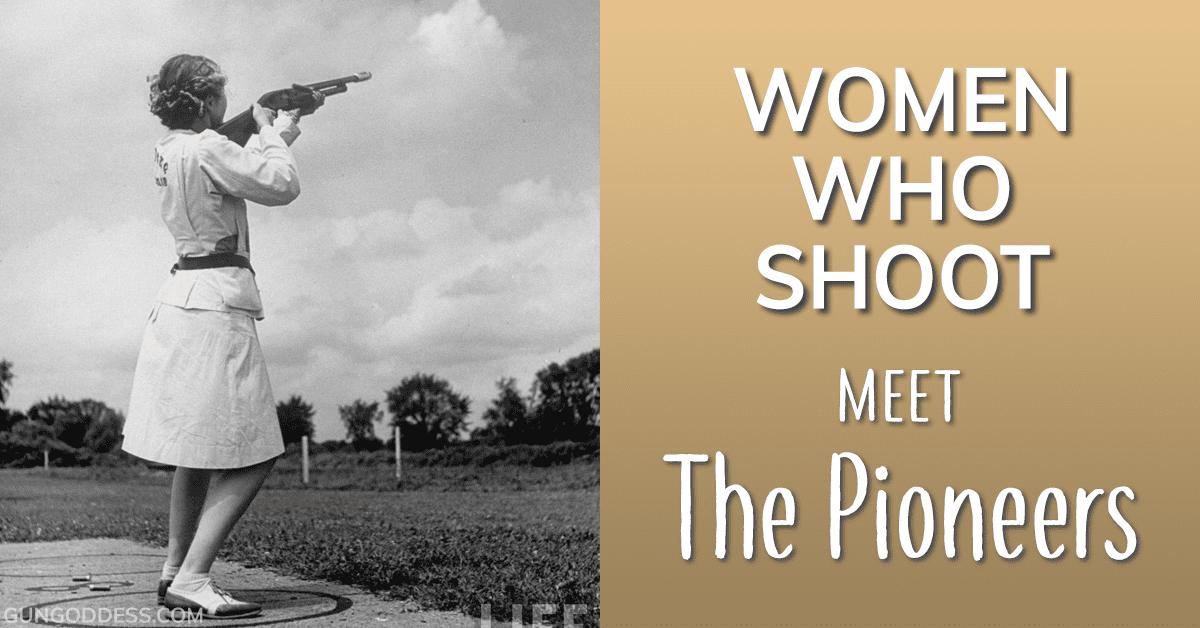Your Cart is Empty
Orders Over $100 Ship FREE (USA)!
Orders Over $100 Ship FREE (USA)!
CONCEALED CARRY
(Apparel with holster pockets or concealed-carry features)
(Apparel with holster pockets or concealed-carry features)
PARTS & GEAR
RANGE STYLE
Gift shopping & not sure about size or style? Give a gift card instead!
Gift shopping & not sure about size or style? Give a gift card instead!
GIFT IDEAS
The entire site is full of products that make great gifts, so browse all of our collections! Still not sure? Give a gift card!
The entire site is full of products that make great gifts, so browse all of our collections! Still not sure? Give a gift card!
EXPLORE
Women Who Shoot: Meet Jessica Nietzel
4 min read
Welcome to Women Who Shoot, our series that highlights women from all over the country who are making a positive difference in the shooting community.
Meet Jessica Nietzel - she's a formidable USPSA and Multigun competitor, gun writer, hunter, and an outspoken dry fire advocate. We asked her some questions about how she got started and her experiences as a competitive shooter. Here's her story:
Tell us a little bit about how you learned to shoot
My first shooting experience was with a BB gun in my grandparents’ backyard. My grandma would put coffee cans on fence posts and we’d punch holes in them all afternoon.
When did you shoot your first competitive match and what kind of competition was it?
I started competitive shooting in March of 2014. It was a local practice match with USPSA-style rules and targets. The match was scored time minus one second per Alpha, so it had a greater focus on accuracy than the Hit Factor scoring used in regular USPSA matches.
What drew you to practical competition shooting?
I watched some friends shoot a steel match. About halfway through the match, I said, “I think I can do this…”
What do you like best about shooting competitively?
Competitive shooting is my happy place. When I’m at the range, I’m only thinking about shooting. The challenges it presents don’t leave room for thinking about much else.
I love the speed. I love the drive to squeeze every tenth of a second and every alpha out of a stage. I love the camaraderie I feel when I’m surrounded by people of all walks of life who, for those few hours, are all focused on the same thing.
Not too long ago, you suffered a pretty terrible injury while shooting a match - can you explain what happened and what you did to recover?
I broke my leg in three places while shooting a two gun match. It was what the doctors called a hard-plant fracture. I was running from one side of the bay the other and planted my foot wrong and spiral fractured my fibula. When I could no longer articulate my foot, I tripped and fell and broke the fibula again, along with the tibia.
I spent about 5 months in recovery after surgery and another 4 months after that in physical therapy. I spent a lot of time beneath a squat bar regaining equal force and balance after having been in a splint or boot for five months.
I had an exceptional PT, who was also a competitive shooter, who got me back up and running faster and stronger than anyone thought possible, especially me. It wasn’t easy, but I’m grateful to be back stronger and more physically capable than before my injury.
What's your favorite piece of gear and why?
All of it! I love all my guns and gear equally!
But really, the one piece of gear that has improved my experience on the range the most is my custom-molded electronic ear pro. Lots of people spend a lot of time messing with their ear protection, and every second you’re without means you’re vulnerable to irreparable hearing damage. I had my share of that damage early in my shooting experience and am so glad I now have excellent ear protection I put in and forget about it all day.
If you’re thinking about your gear, you’re not thinking about the shooting, so the more tailored to you it can be, the better. I’m a firm believer in making your gear work for you, not working for your gear.
Has anyone ever given you any advice or shared some wisdom that made an impact on you?
Lots of it! Probably the most impactful nugget was to respect my limitations. Sounds like great advice, huh? Ha Ha! Let me explain:
They weren’t talking about physical limitations, but mental ones. As humans, we’re wired to only focus on one thing at a time. In order to excel, the majority of our skills need to be subconscious. We can’t be thinking about moving, reloading, pressing the trigger right, and hitting the right positions all at the same time.
All those things need to be programmed ahead of time - then while we’re on the clock, we give our brain just one thing to focus on and the rest happens subconsciously. This reality unlocked a lot of positive momentum for me and gave me a LOT of homework to do to drive all the skills I needed to the subconscious level.
What's the best piece of advice you can give someone who wants to start shooting practical competition?
If you’re already proficient in operating your firearm, go watch a match. Introduce yourself to the match director and to whomever you come across. Figure out what requirements you need to meet to start shooting. Some ranges have mandatory safety meetings. Some clubs offer mentor programs for new shooters. Just figure out the club’s process for beginners.
Then register for the next match and shoot. I’ve heard, “I’m not quite ready yet.” so many times. Here’s the secret no one will tell you...you’re never going to be ready.
Even people with LOTS of gun experience aren’t prepared for the pressure of shooting on the clock. You just have to start slow, and the community will help you along as you learn.
You’re going to make mistakes, you’re going to get beat by better, more experienced shooters. That’s how it goes. But with a little courage, a little patience, and a lot of practice, you’ll soon feel right at home.
Can you give us a quick training tip?
You can’t just shoot matches and expect to get better. Spend the time at the beginning working in both dry fire and live fire to make the basic skills subconscious - you’ll get better faster!
Break down all the skills necessary to complete a stage, then work on each of those independently. After that, you can start combining the skills.
There are some really great live fire and dry fire books out there. Buy them, set up a practice schedule, and put in the work early. Your results will multiply exponentially.
Jessica is a "Gun Racer & Gear Breaker" for Predator Technology Group and you can follow her shooting progress and watch her informative dry fire videos on her Instagram page at @riflejess.
Also in Women Who Shoot - Interview Series

Women Who Shoot: Jalise and Justine Williams
4 min read
Meet Jalise and Justine Williams - two incredible young ladies who have taken the competitive shooting world by storm! At just 15 and 16 years old, they are already seasoned competitors with dozens of titles under their belts.
Read More
Women Who Shoot: Meet Julie Waasted
5 min read
Meet Julie Waasted, a woman with an incredible story of perseverance. She's a very active 3-Gun competitor who took up shooting after complications from brain surgery caused her to lose her eyesight in one eye.
Read More
Women Who Shoot: The Pioneers of the Shooting Sports
2 min read
We all know who Annie Oakley is, but you may not know a lot of other women throughout history who were pioneers in the shooting sports. Here are some of them...
Read More